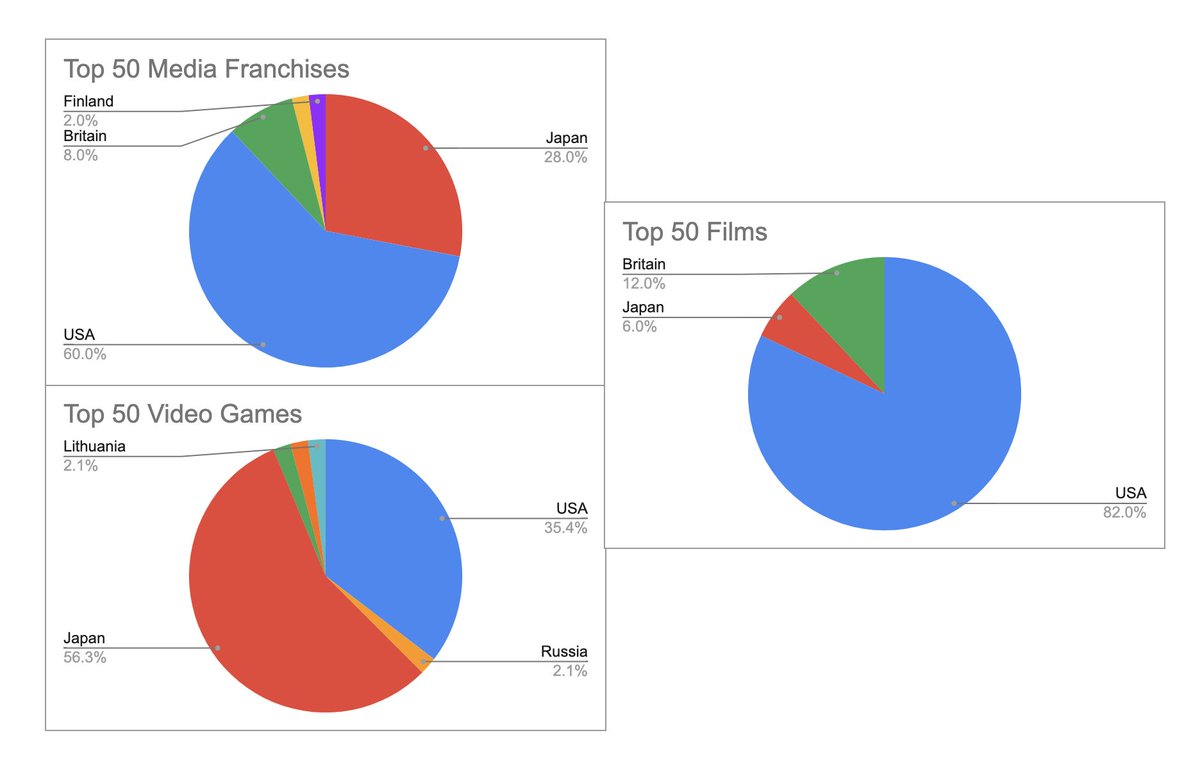We still live in a society of geocentric creationists.
For 98% of people "evolution/Big Bang" just occupies the slot where "God" once did.
We must integrate the meaning of a snowball planet of alien creatures, battered by asteroids or worse.
A 🧵on the last 4.5 billion years:



For 98% of people "evolution/Big Bang" just occupies the slot where "God" once did.
We must integrate the meaning of a snowball planet of alien creatures, battered by asteroids or worse.
A 🧵on the last 4.5 billion years:



Some wacky people try to fit dinosaurs into 3000 BC.
"Scientifically rebutting" them is a meaningless achievement, because it fails to address the actual and very deep problem:
How can we possibly put the starting point of meaningful history *after* dragons walked the Earth?
"Scientifically rebutting" them is a meaningless achievement, because it fails to address the actual and very deep problem:
How can we possibly put the starting point of meaningful history *after* dragons walked the Earth?

"The science" fails to address this problem, instead downplaying such incredible facts into irrelevance.
People thus just replace the "God" Story with the new "Science" Story and continue believing meaningful history starts in 3000 BC—or 1619, 1776, or 1945.
People thus just replace the "God" Story with the new "Science" Story and continue believing meaningful history starts in 3000 BC—or 1619, 1776, or 1945.
This means there is functionally little difference between a Bible-thumping creationist and a typical secular person.
Neither is interested in the actual 4.5 billion years of Earthly history. Angels or dinosaurs are just a way to fill in the blank spaces so they can be ignored.
Neither is interested in the actual 4.5 billion years of Earthly history. Angels or dinosaurs are just a way to fill in the blank spaces so they can be ignored.

Not only are we implicit creationists with no interest in our primordial past, we are implicit geocentrists with no interest in other planets or stars.
Despite incredible scientific findings and new technology, modern society thus remains effectively medieval.
Cosmophobia.
Despite incredible scientific findings and new technology, modern society thus remains effectively medieval.
Cosmophobia.

There are good reasons to fear the actual cosmos, but they do not justify preferring imagined universes.
So what are the meaningful implications of the scientifically-learned history of the Earth?
To begin with, I think it basically disproves environmentalism…
So what are the meaningful implications of the scientifically-learned history of the Earth?
To begin with, I think it basically disproves environmentalism…
The Earth has repeatedly terraformed itself into new worlds.
Earth has been a lava world and a water world, maybe orange and then purple, and, of course, a nearly-or-completely frozen-over "snowball" world.
Most of its history, the Earth was unrecognizable as the Earth.



Earth has been a lava world and a water world, maybe orange and then purple, and, of course, a nearly-or-completely frozen-over "snowball" world.
Most of its history, the Earth was unrecognizable as the Earth.



As with all such primordial history, nearly everything is far more of a "maybe" than a "certainly." But we know the Earth wasn't ever static.
This means the imagined Mother Earth is not a permanent place or planet, but just a temporary period of time.
This means the imagined Mother Earth is not a permanent place or planet, but just a temporary period of time.

The Gaia hypothesis is the idea that life itself affects Earth's climate and sustains the conditions for life in a single self-regulating system.
Intended or not, it has become the intellectual justification for quasi-religious "We Are All One" environmentalism.
Intended or not, it has become the intellectual justification for quasi-religious "We Are All One" environmentalism.

But we are not all one: e.g. the introduction of oxygen into the atmosphere by aerobic bacteria was likely a total genocide of earlier organisms.
After that, the Earth [almost?] froze over at least twice, befuddling scientists as to how it didn’t just kill all life.


After that, the Earth [almost?] froze over at least twice, befuddling scientists as to how it didn’t just kill all life.


Sure, you could say all this happened before the emergence of what we consider meaningful life i.e. land animals, ~500m years ago, which has since survived despite several extinction events.
But that is just again arbitrarily setting the starting point of meaningful history.


But that is just again arbitrarily setting the starting point of meaningful history.


If we take the Earth's full and actual history to be Mother Gaia harmoniously regulating herself, then this “self-regulation” includes occasional climatic genocide verging on extinguishing all life.
Doesn't actually seem very harmonious. Humanity likely wouldn't survive it.
Doesn't actually seem very harmonious. Humanity likely wouldn't survive it.
To believe in Gaia-ism, you then need to morally equate human life with, like, deep-sea bacteria.
Because this might be the only life that survives "self-regulation."
This is really just a genocidal mindset towards humanity. No, we are not like cockroaches or bacteria.
Because this might be the only life that survives "self-regulation."
This is really just a genocidal mindset towards humanity. No, we are not like cockroaches or bacteria.
It is perhaps not humans who are destroying the Earth, but the Earth that is very slowly trying to destroy humans!
You may just have to pick a side. Of course, many people would and do choose Gaia over humanity. But this does also make them anti-human.
You may just have to pick a side. Of course, many people would and do choose Gaia over humanity. But this does also make them anti-human.
Secondly, Earth is not a sanctuary or Garden of Eden for humanity.
Occasionally, asteroids do impact the Earth and just totally obliterate everything. Given a big enough asteroid, there might be nothing we could do to stop total extinction.
We are not safe here.
Occasionally, asteroids do impact the Earth and just totally obliterate everything. Given a big enough asteroid, there might be nothing we could do to stop total extinction.
We are not safe here.

We know that 66 million years ago an asteroid 10-15 km wide smashed into what is today Mexico and killed, like, every animal on the planet that didn't live off of eating dead matter, including all the dinosaurs.
Talk about apocalyptic events. And this was relatively recent!
Talk about apocalyptic events. And this was relatively recent!

The Earth is constantly peppered by meteoroids. The asteroid that killed the dinosaurs is neither the largest nor oldest confirmed impact. Just look at the map.
It then seems like there is a decent chance of a catastrophic asteroid impact sometime during humanity's existence.
It then seems like there is a decent chance of a catastrophic asteroid impact sometime during humanity's existence.

So what does this mean? Well, if God hated us… believe me, we would know!
Jokes aside, it implies we cannot reconcile our continued long-term habitation of Earth with low-tech primitivism.
We were cast out of Eden. Perhaps we might only rebuild it with anti-asteroid lasers.
Jokes aside, it implies we cannot reconcile our continued long-term habitation of Earth with low-tech primitivism.
We were cast out of Eden. Perhaps we might only rebuild it with anti-asteroid lasers.
It seems a little bit passé given the other gargantuan changes, but I should also note how plate tectonics constantly remake geography.
If you go back far enough, the Earth might as well be Narnia, Middle Earth, or Faerûn or whatever.
If you go back far enough, the Earth might as well be Narnia, Middle Earth, or Faerûn or whatever.

Finally, the Earth might, incredibly, not be unique.
Kookiness aside, the science says it is possible Venus and/or Mars used to have liquid surface water and thus maybe life—even before Earth!
It is also conceivable that life came to Earth from Venus or Mars on an asteroid.


Kookiness aside, the science says it is possible Venus and/or Mars used to have liquid surface water and thus maybe life—even before Earth!
It is also conceivable that life came to Earth from Venus or Mars on an asteroid.


The Earth also has an expiration date for habitability.
The Sun is getting bigger and brighter and will slowly heat the Earth beyond the point where life as we know it can survive.
It might even happen relatively soon, in ~1 billion years.
The Sun is getting bigger and brighter and will slowly heat the Earth beyond the point where life as we know it can survive.
It might even happen relatively soon, in ~1 billion years.
That there is a definite endpoint to life on Earth, and that Earth may not be unique in hosting life on a billion-year timescale, could imply it is not habitable environments that create the conditions for life, but life that seeks out habitable conditions across space and time.
This logic can easily take you into kooky territory if projected backwards: alien-ish life hopping from Venus to Mars to Earth and beyond as planets die.
But it is perfectly sound projected forwards: humanity will eventually either figure out how to leave the Earth, or die out.
But it is perfectly sound projected forwards: humanity will eventually either figure out how to leave the Earth, or die out.
This is why we should not be geocentrists: humanity cannot be tantamount to Earth-Dwellers unless we intend to die out within a billion years.
The pessimist says we will kill ourselves somehow anyway long before. But why should we *intend* this? We should intend the opposite.
The pessimist says we will kill ourselves somehow anyway long before. But why should we *intend* this? We should intend the opposite.
It is possible to view life as a fundamentally interplanetary phenomenon, as did some of the original pioneers of rocketry and space travel.
This obviously makes space exploration a fundamental existential priority, as I wrote in @palladiummag:
palladiummag.com/2023/08/16/the…
This obviously makes space exploration a fundamental existential priority, as I wrote in @palladiummag:
palladiummag.com/2023/08/16/the…
I won't pretend to have figured out the true cosmology and metaphysics. But we should be trying to actually figure it out based on scientific reality, not imagination or inertia.
This is likely the only path to ever see a mass religious awakening in the developed world again.
This is likely the only path to ever see a mass religious awakening in the developed world again.
• • •
Missing some Tweet in this thread? You can try to
force a refresh

 Read on Twitter
Read on Twitter





















